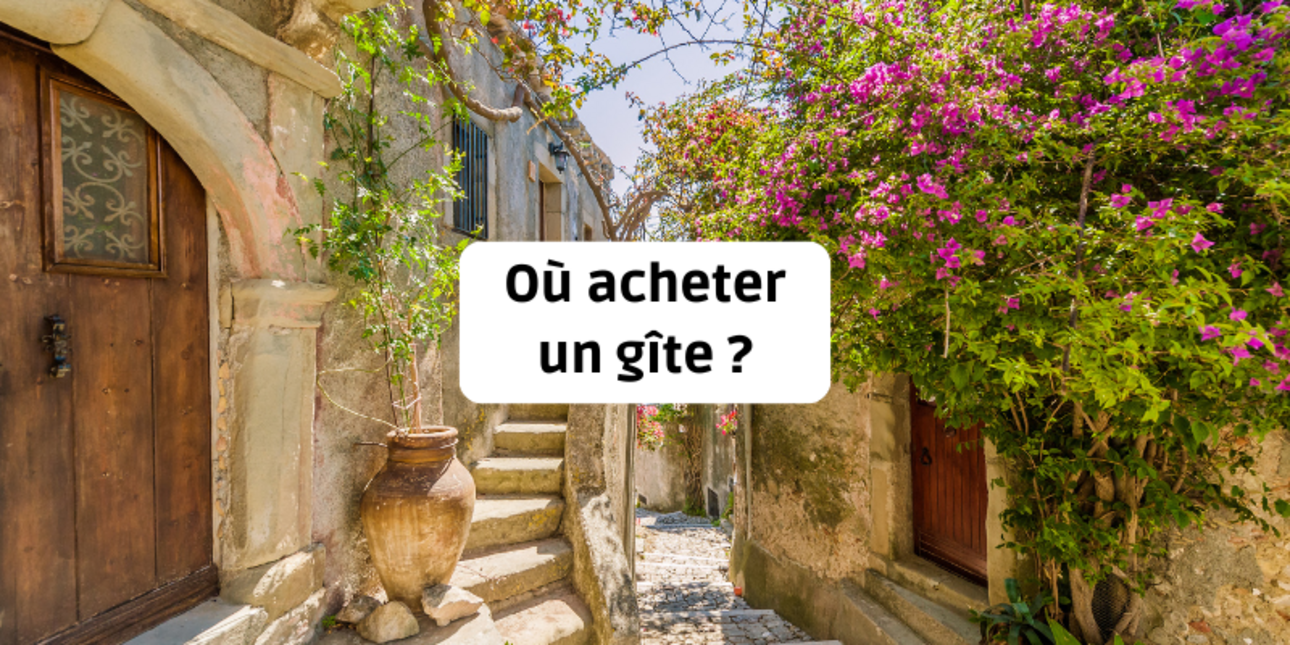
Buying a gîte is an exciting adventure that can offer a great deal of personal and financial satisfaction. However, it requires careful preparation and a good knowledge of the property market. In this article, we'll guide you through the essential stages of buying a gîte in France, highlighting the best locations and the criteria you need to take into account to make an informed choice.
Before you decide to buy a gîte, it's crucial to define your project properly. Ask yourself the right questions to identify your expectations and needs, so as to maximise the profitability of your investment.
The term gîte covers a variety of tourist accommodation, ranging from small country houses to large properties with several dwellings. Here are some common types of gîtes:
Drawing up a realistic budget is essential. Take into account not only the purchase price, but also ancillary costs such as renovation work, equipment and notary fees. Don't forget to leave a margin for unforeseen circumstances. It's also a good idea to consult a specialist agency for advice tailored to your project.
Once you've defined your plans, it's time to start looking for the ideal gîte. Here are a few tips to help you along the way.
Location is a key factor in the success of your gîte. Here are some popular areas in France for buying a gîte:
Proximity to a town or airport can also be an advantage. Make sure the gîte is well located in an attractive tourist area.
There are several resources you can use to find a gîte for sale:
Once you've identified a few potential gîtes, it's time to visit them and assess them in detail.
To avoid unpleasant surprises, it may be a good idea to call in an architect or contractor to assess the condition of the gîte and estimate the cost of any work required. These experts can also help you identify the features that will increase the value of your property.
Buying a gîte is a major investment. Here are some tips on how to finance your project.
In addition to the purchase price, take into account the costs of renovation, notary fees and expenses associated with running the gîte. Prepare a detailed business plan to present your project to the banks. This plan should demonstrate the profitability of the investment and the associated costs. A solid financial plan can be an asset when it comes to obtaining finance.
There are a number of financial aids available for the purchase and renovation of gîtes, granted by the State, regional or departmental councils, and sometimes even by the European Union. Check with your local authorities to find out what grants you are eligible for, which could significantly reduce the overall cost of your project.
Compare business credit offers and don't hesitate to compare banks. Using a broker can also help you obtain the best financing terms.
Buying a gîte is an ambitious project that requires careful preparation and a good knowledge of the market. By following the steps outlined in this article, you'll put all the chances on your side for a successful investment. The location, the condition of the gîte and the quality of the facilities are essential criteria for attracting and retaining your future customers. Make sure you consult the specialists and take all the relevant factors into account before finalising your transaction. Good luck in your adventure!
1. How do I sell a gîte?
2. How much does a night in a gîte cost?
3. How profitable is a gîte?
4. Buying a gîte or creating a gîte: which should you choose?
5. What are the formalities for opening a gîte?
6. The different types of gîtes
7. Taxation of gîtes
8. Gîte labels: a guarantee of quality for your rural accommodation
9. Gîte classification
10. Running a gîte as a business
11. How to communicate effectively for a gîte
12. How to choose the best platform for your gîte
13. What criteria should I take into account when buying a gîte?
14. Furnishing and decorating a gîte
15. What is the ideal number of bedrooms for a gîte?
16. The advantages of a large plot for your gîte
17. What are the essential features of a self-catering cottage?
18. Should a swimming pool be installed for a gîte?
19. What price should I pay for a gîte?